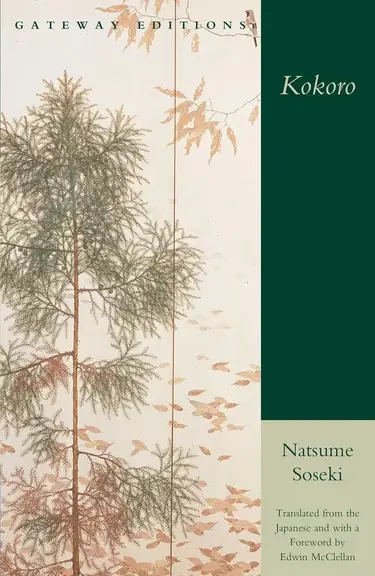Kokoro

The narrative unfolds through the perspective of an unnamed protagonist, who is referred to as "I" or "Sensei." He reflects on his past and his relationship with a young man known as "K." Soseki divides the story into three parts: "Sensei and I," "My Parents and I," and "Sensei and His Testament."
In the first part, "Sensei and I," the protagonist befriends a young man named K. K becomes a source of fascination and intrigue. As their relationship develops, Sensei confides in K, revealing deep-seated guilt and secrets from his past. This includes a tragic event that haunts him.
The second part, "My Parents and I," delves into the protagonist's childhood and his strained relationship with his parents. It explores themes of filial duty, societal expectations, and the struggle to reconcile personal desires with societal norms.
In the final part, "Sensei and His Testament," the narrative shifts to the perspective of Sensei himself. Through his testament, he reveals the reasons behind his melancholic disposition. And the impact of his past experiences on his present state of mind. The testament serves as a reflection on the complexities of human emotions. It also reveals the burden of guilt, and the struggle for personal authenticity.
Renowned for its introspective prose, Kokoro explores the internal lives of its characters. Soseki delves into the depths of human emotions, examining the inner conflicts, desires, and vulnerabilities of his characters. The novel raises questions about the nature of identity, the search for meaning, and the consequences of societal pressures on individual happiness.